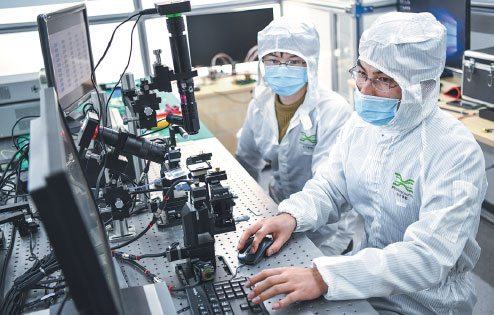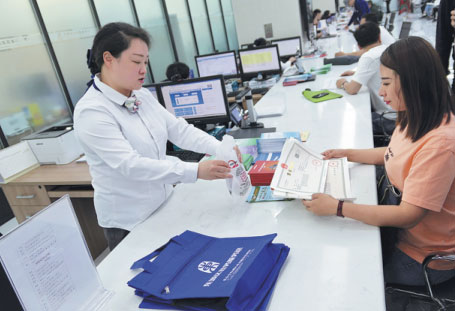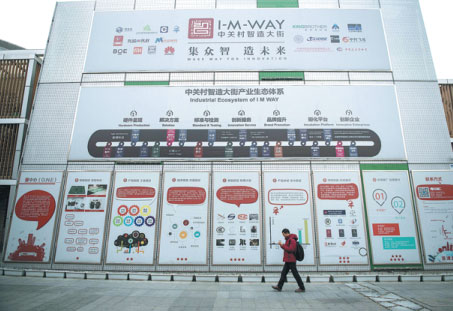Private sector's role in local economy praised
 |
|
Startup project team members work at a college entrepreneurship park in Beijing. Deng Wei/for China Daily |
New measures introduced to create a climate for entrepreneurship
The Beijing Federation of Industry and Commerce recently announced lists of the capital's top 100 private enterprises in aspects including science and technology, culture and corporate social responsibility.
On the list of top 100 private enterprises in Beijing, each earned at least 2.72 billion yuan ($387 million) in operating revenue in 2018, an increase of 28.73 percent over the previous year.

This year, the federation took seven indicators into consideration while making the list. They included a company's workforce productivity, contributions to the city's GDP and attractiveness to top overseas talents, said Yan Ying, president of the BFIC.
The BFIC also adopted a one-vote veto process in the selection to weed out the companies liable for environmental damage, severe work safety accidents and other scandals, Yan said.
The private sector is a strong force in driving the capital's development, she said. "Private enterprises in Beijing have enhanced their comprehensive strength significantly."
Releasing the top 100 lists is part of Beijing's effort to promote sound development momentum of the non-public economy, she added.
The listed companies covered a range of industries including information technology, intelligent manufacturing, biopharmaceuticals and artificial intelligence.
Among them was Center International Group, a company engaged in the design, manufacture and construction of structural steel buildings in China.
Liu Aisen, chairman of the company, said the lists reflect that private enterprises in Beijing have forged ahead in technology-driven development.
 |
|
An employee at an administrative service center helps applicants obtain business licenses.Provided To China Daily |
"This ranking also encourages us to expand our investment in technological research and development," Liu said. "Companies like ours have a strong desire to capitalize on Beijing's advantages in talent and higher education institutions."
Beijing's business environment has changed remarkably in recent years, Liu said, to the point where local authorities now offer companies training and door-to-door service for tax-related affairs.
"It took us just two days to renew our business license on online platforms, far shorter than a month in the past."
In addition, the government also provides companies' high-caliber employees with low-rent housing and educational resources for their children, which help them retain talent, Liu said.
Qi An Xin, a Chinese cybersecurity company, was listed as one of the top 100 private scientific and technological innovation enterprises.
Qi Xiangdong, chairman of Qi An Xin, attributed the company's progress to Beijing's improved business environment and local governments' thoughtful services.
Local officials introduced relevant policies during their visit to the company, Qi said.
"As a private company in Beijing, we pay attention to the value of innovation and have constantly developed new technologies and services in the cybersecurity field," he said.
Over the past three years, the company has seen leapfrog development in its business operation and has achieved a growth rate of nearly 100 percent in revenue, the executive said.
In 2018, the top 100 private enterprises achieved total operating revenue of 2.63 trillion yuan, an increase of more than 20 percent compared to the previous year.
They paid 105 billion yuan in combined tax, up 60.18 percent year-on-year.
 |
|
A pedestrian walks past the I-M-Way, an intelligent manufacturing cluster in Beijing's Zhongguancun high-tech business area. Luo Xiaoguang/xinhua |
Wang Jun, head of the Beijing administration of government services, said that the city government has attached great importance to the development of private enterprises and private entrepreneurs.
"The private economy is a major part of employment and entrepreneurship in Beijing and is key to the capital's technological innovation," Wang said.
The city will continue to improve the business environment and to offer companies preferential policies such as in financing and more accurate regulations, he said.

